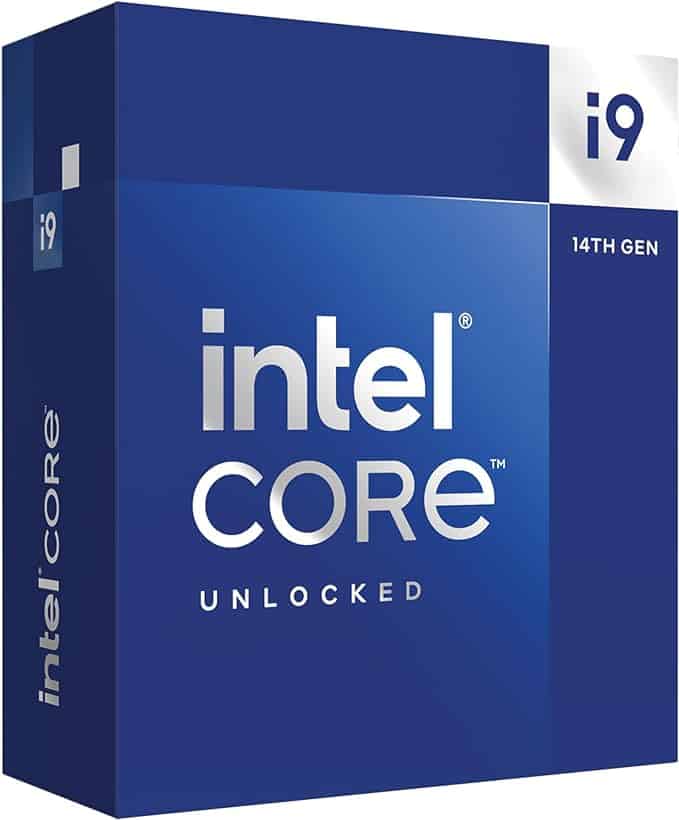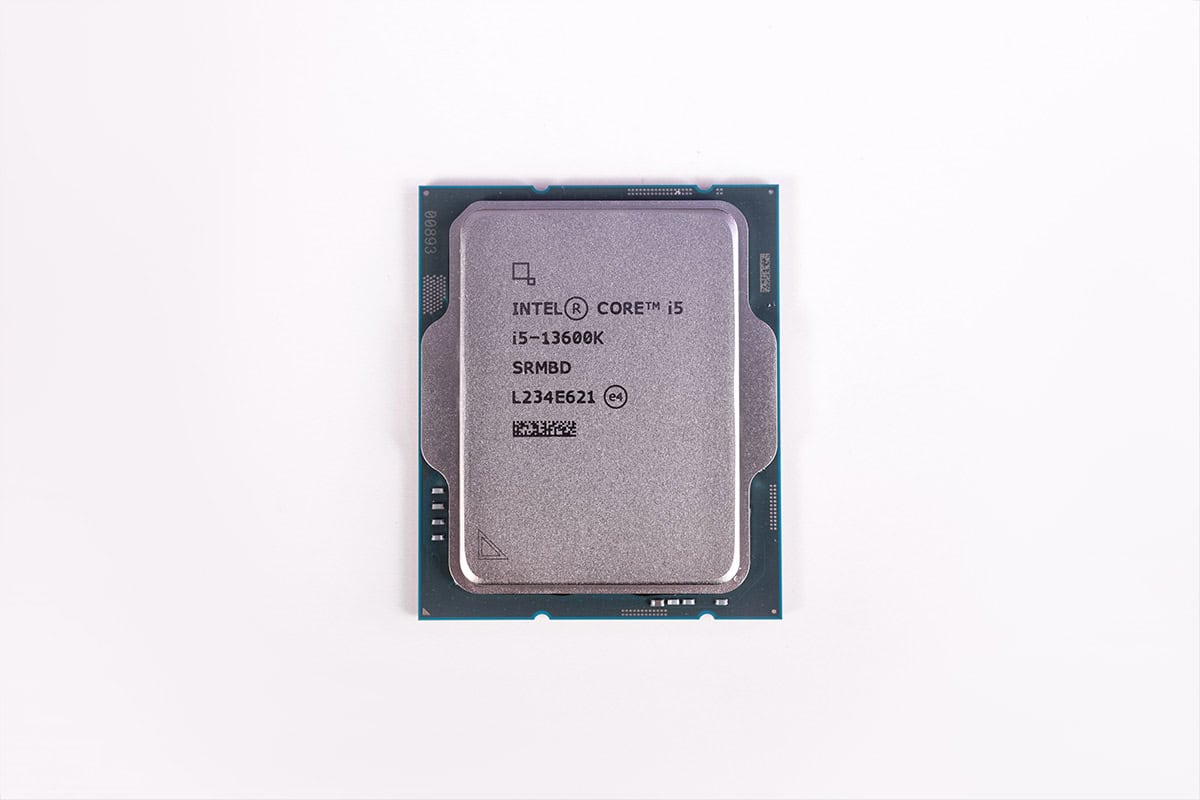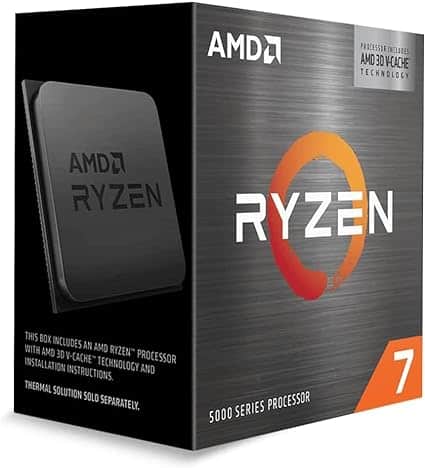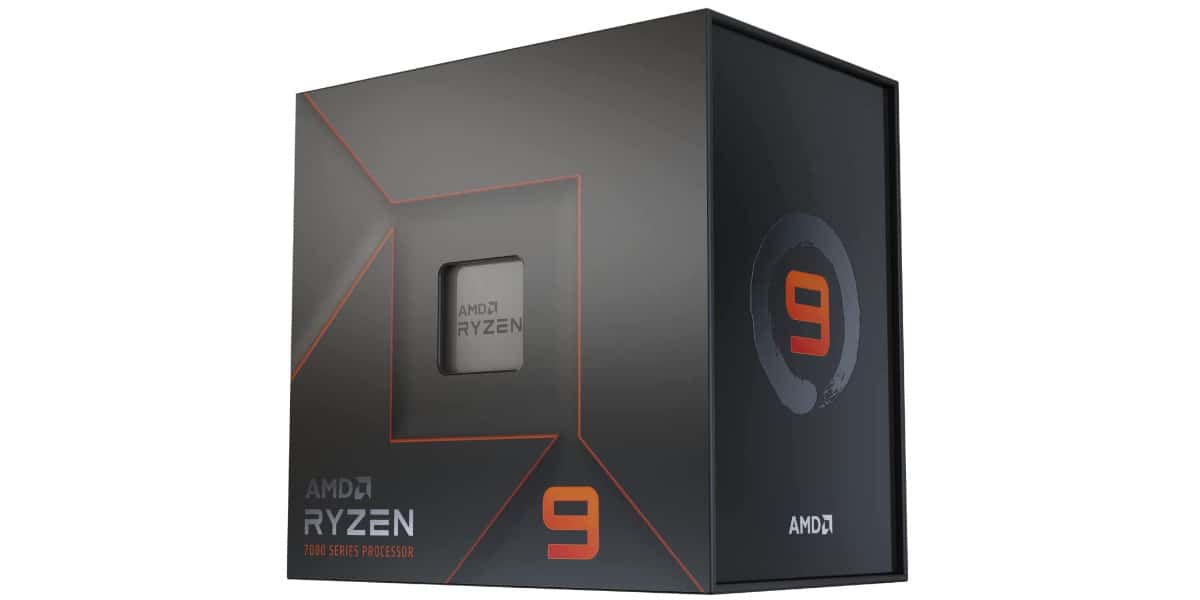Ryzen 9 9900X Vs Ryzen 5 7600X – Will Zen 4’s lowest power SKU hold up?
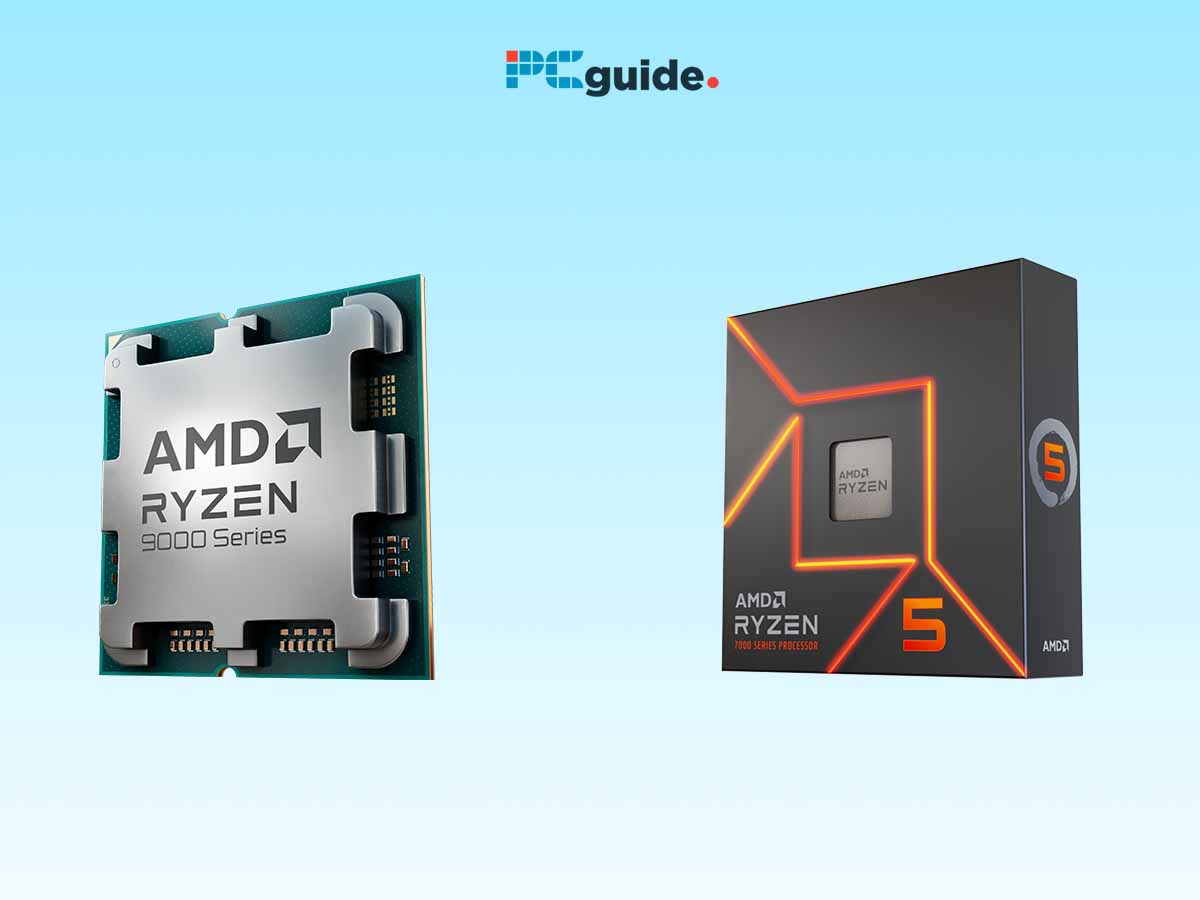
Table of Contents
AMD is very close to releasing its 9000 series into the hands of customers, with the release date of the Ryzen 9 9900X looming, many want a deep dive into its specifications and performance against the last generation of AMD CPUs. We will facilitate such an analysis. How does Zen 5 stack up against Zen 4?
Zen 5 holds a huge improvement over the 5nm Zen 4 architecture, with this being a huge IPC improvement of 16%. The 9900X holds many better specifications than the 7600X, which we have reviewed, but that doesn’t mean it’s totally inferior. As with anything, it matters how you would like to use it, considering your exact use case and needs can save you a lot of money in the long run, and cut overspending on technology you won’t fully utilize.
Prime Day is finally here! Find all the biggest tech and PC deals below.
- Sapphire 11348-03-20G Pulse AMD Radeon™ RX 9070 XT Was $779 Now $739
- AMD Ryzen 7 7800X3D 8-Core, 16-Thread Desktop Processor Was $449 Now $341
- ASUS RTX™ 5060 OC Edition Graphics Card Was $379 Now $339
- LG 77-Inch Class OLED evo AI 4K C5 Series Smart TV Was $3,696 Now $2,796
- Intel® Core™ i7-14700K New Gaming Desktop Was $320.99 Now $274
- Lexar 2TB NM1090 w/HeatSink SSD PCIe Gen5x4 NVMe M.2 Was $281.97 Now $214.98
- Apple Watch Series 10 GPS + Cellular 42mm case Smartwatch Was $499.99 Now $379.99
- ASUS ROG Strix G16 (2025) 16" FHD, RTX 5060 gaming laptop Was $1,499.99 Now $1,274.99
- Apple iPad mini (A17 Pro): Apple Intelligence Was $499.99 Now $379.99
*Prices and savings subject to change. Click through to get the current prices.
If news of AMD pushing back the release date has you in a pre-ordering mood, then you can check out our where to buy on the 9900X. Here we have listed all the retailers we expect to be accepting pre-orders.
AMD Ryzen 9 9900X
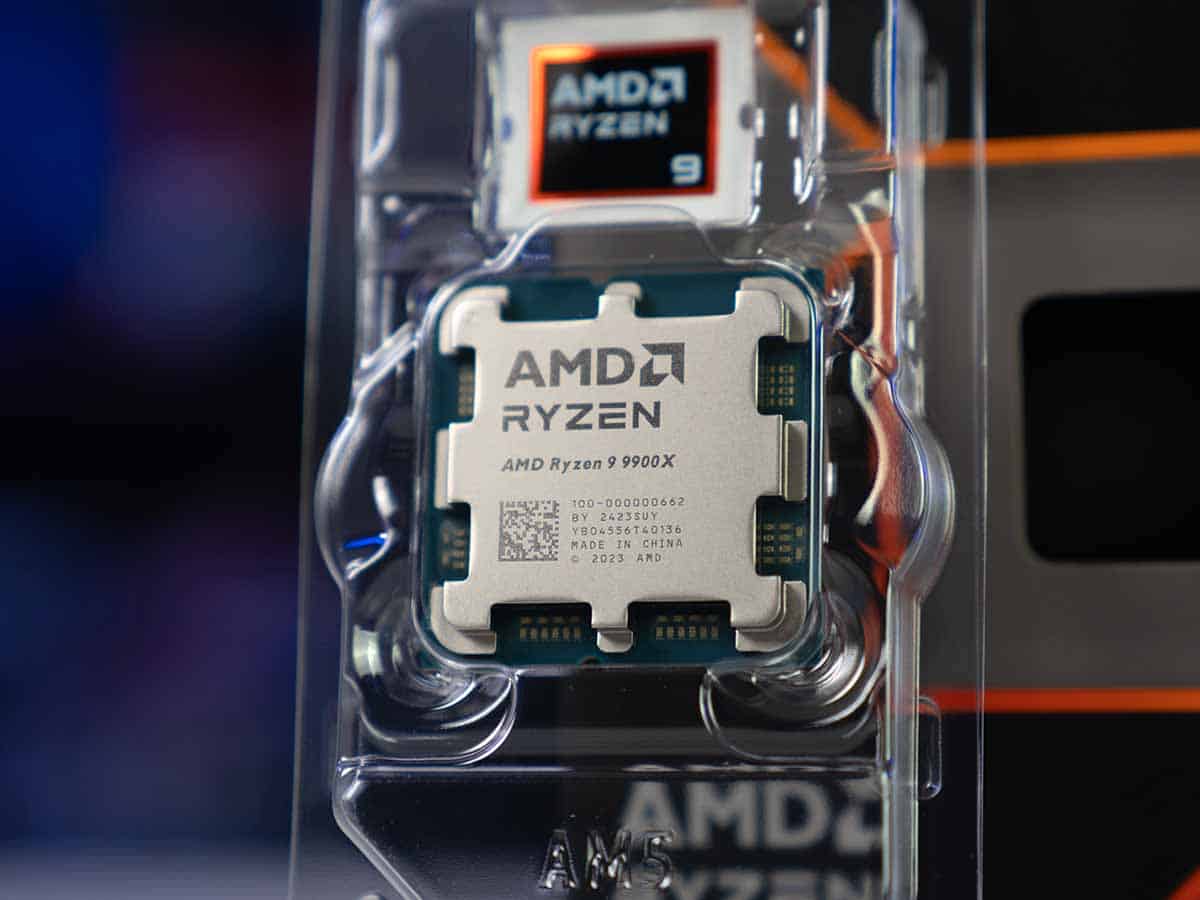
Cores
12
Threads
24
Boost clock speed
5.6 GHz
Base clock speed
4.4 GHz
L3 Cache
64 MB
TDP
120 W
Platform
AMD Socket AM5
Shop on Amazon
CHECK PRICEAMD Ryzen 5 7600X
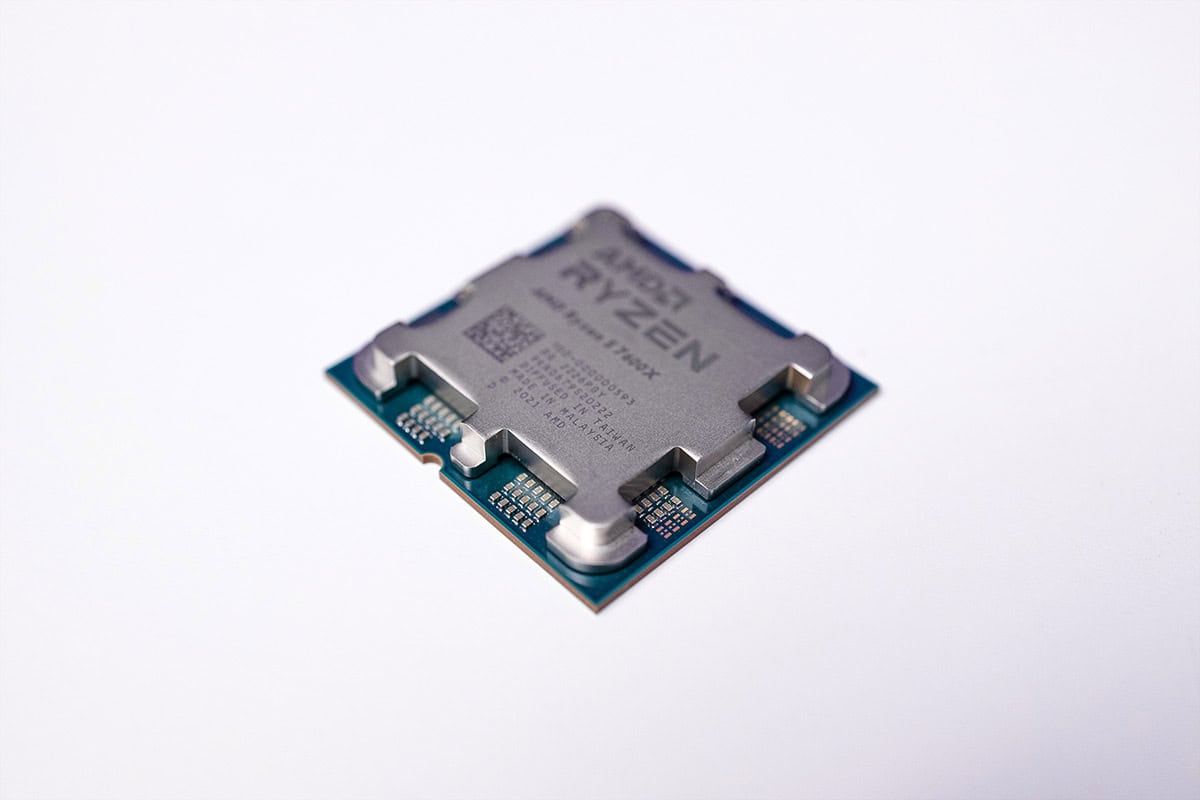
Cores
6
Threads
12
Boost clock speed
5.3 GHz
Base clock speed
4.7 GHz
L3 Cache
32 MB
TDP
105W
Platform
AMD Socket AM5
Shop on Amazon
CHECK PRICESpecifications
It’s easy to pick out a winner on paper, but is that all that’s at play here? It’s often the architecture that makes the biggest difference when it comes to CPU performance, but having double the CPU cores certainly helps.
| Specification | Ryzen 9 9900X | Ryzen 5 7600X |
|---|---|---|
| Cores | 12 | 6 |
| Threads | 24 | 12 |
| Base Clock | 4.4GHz | 4.7GHz |
| Boost Clock | up to 5.6GHz | up to 5.3GHz |
| L3 Cache | 64MB (shared) | 32MB (shared) |
| TDP | 120W | 105W |
| PPT | 162W | 142W |
| Socket | AM5 | AM5 |
| Core architecture | Zen 5 | Zen 4 |
The fact that the 9900X has double the CPU cores, and it’s based on the Zen 4 architecture makes it a fantastic choice if you’re looking for war power and processing potential. As of right now, this CPU is only superseded by the 9950X, in terms of AMD CPUs.

Cores and threads
The Ryzen 9 9900X has double the cores and threads of the 7600X because AMD likes to keep things simple by multithreading all of the CPU cores, this is easy to calculate. The cores in the 9900X may be double in number, but they are also more powerful, thanks to a metric called IPC.
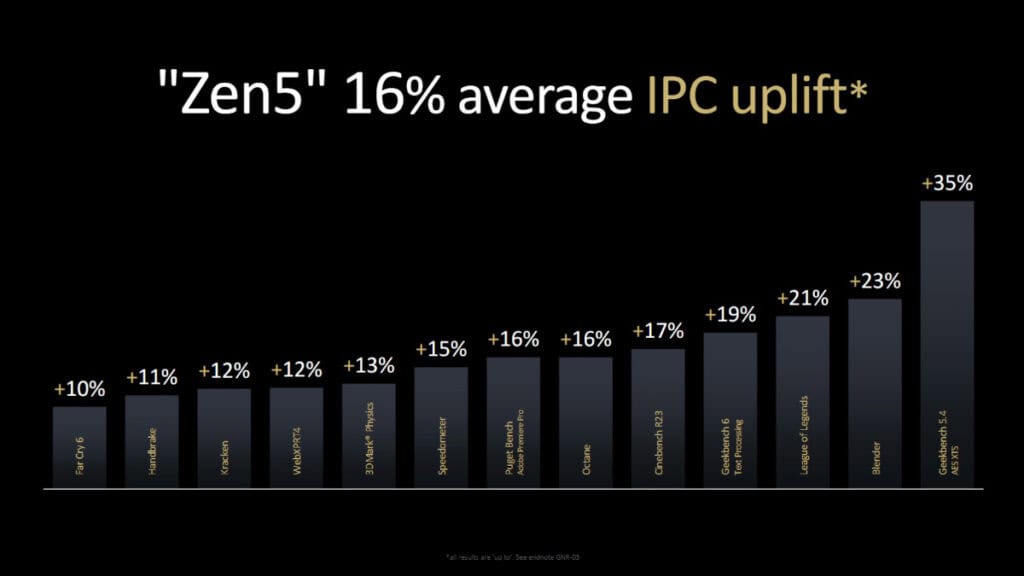
IPC stands for instructions per clock and is a pretty complex mechanism, but I’ll do my best to explain. The 9900X’s cores are built on the Zen 5 architecture, which is a 4nm process technology. The cores in the 7600X are Zen 4, the 5nm technology. What this means is that the transistors in the 9900X are smaller, allowing more to be packed into the same footprint.
Transistors are little yes/no logic gates that cumulatively have the power to process CPU instructions. The more transistors you have in a core, the more capable it is of processing instructions, the better it is. The term “per clock” just refers to one cycle, which we will get into now.
Core speed
The Ryzen 9 9900X beats the 7600X in core speed metrics, and there’s no surprise there. It is important to note, however, that the 7600X does have a little edge in base clock speeds; or does it? This is again where IPC factors in.
You see, each cycle of the 9900X is more valuable, thanks to the increased presence of transistors. The cores inside this CPU can process more instructions every cycle, not only that, but it can cycle faster. So it’s like a double whammy. Both of these CPUs cycle billions of times per second, so we can only imagine how many instructions get processed every second.
TDP and PPT
TDP is the maximum amount of thermal energy a CPU can output under normal operating conditions, meaning not manually overclocked. Despite the 9900X having twice the cores, it is far more efficient pound-for-pound, given that the TDP is only 15W more than the 7600X. Although the 7600X still consumes less power overall.
PPT is the maximum amount of power the motherboard will let through the voltage rails to the CPU. Again, the 9900X only allows 20W more power through than the 7600X, which isn’t a lot when you consider it essentially has double the hardware.
Ryzen 9 9900X price predictions
Of course, we know how much the 7600X costs on launch, but if you’re lucky now, you can nab one for around $200. In terms of the 9900X, unfortunately, AMD hasn’t released any official prices for the upcoming Ryzen 9000 series. The best we can do is to use historical data to predict the upcoming launch prices. Here’s the MSRP of previous CPUs:
- 7950X- $699
- 7900X – $549
- 7700X – $399
- 5700X – $299
- 5900X – $549
- 3900X – $499
- 14900K – $589
- 13900K – $589
- 14700K – $409
- 13700K – $409
We’d like the Ryzen 9 9900X to retail for $549, like its predecessor. However, the world is a different place than it was 2 years ago. There are increased manufacturing costs and cost of living increases that may end up affecting the final price of the CPUs this time around. Though it would be nice if AMD footed the bill for this one. We are optimistic, but we do almost expect a price increase.
Graphical capabilities
Both of the CPUs we have today are equipped with iGPUs, meaning they are capable of displaying an image without a dedicated GPU. The 7600X has an RDNA 2-based dual CU unit capable of playing CS:GO at 130FPS, according to WePC. But the 9900X has an RDNA 3-based dual CU unit, with a variable clock speed of 400 – 2,200MHz.
It will be interesting to see just how much more powerful the iGPU inside the 9900X is. Given that these integrated graphics were never designed to play games on, they have certainly proved themselves before. One thing’s for sure though, either will be perfect for light office workloads and web browsing.
CPU platform
We’ve discussed the generational differences between these two CPUs, so we should move on to the platform that supports them. You’ll be happy to know that both of these CPUs belong to the same platform. AM5 offers lots of connectivity and technology, given that it is the current platform in use today. It is also the platform that the new X870 motherboards will release.
X870 is designed to be the best of the best, we don’t know loads about it yet, but we do know it’ll offer USB 4 with improved power stages at the very least. The best thing about this is you don’t have to have a Ryzen 9000 series to take advantage of these new features. Because of the AM5 socket, you can use a 7000 series processor, however, you’ll likely have a better experience with a Zen 5 CPU.
Alternatives to the 9900X and the 7600X
The best of the best has to be the 9950X, and we have the CPU that’s just one down from that! The second-in-command Ryzen is just as important in the bid for the best processor, so we’re only going to compare it to the best of the best that Intel has to offer. That’s the 14900K. Although, if you’re still on AM4, and you fancy an upgrade that won’t break the bank, we introduce you to the 5800X3D.
-
Intel Core i9-14900K
- Cores: 24 (8P-16E)
- Threads: 32
- Boost clock speed : P-Core 5.8GHz / E-Core 4.4GHz
- Base clock speed: P-Core 3.2GHz / E-Core 2.4GHz
- L3 Cache: 36 MB
- TDP: 253W
-
Intel Core i5-13600K
- Cores: 14 (6P-8E)
- Threads: 20
- Boost speed : P-Core 5.1GHz / E-Core 3.5GHz
- Base speed: P-Core 3.5GHz / E-Core 2.6GHz
- L3 Cache: 24MB
- TDP: 181W
-
AMD Ryzen 7 5800X3D
- Cores: 8
- Threads: 16
- Boost speed : Up to 4.5 GHz
- Base speed: 3.4 GHz
- L3 Cache: 96 MB
- TDP: 105W
-
AMD Ryzen 9 7900X
- Cores: 12
- Threads : 24
- Boost clock speed: 5.6 GHz
- Base clock speed: 4.7 GHz
- L3 Cache: 64 MB
- TDP: 170 W
Which CPU is best for you?
The Ryzen 9 9900X takes the cake in terms of raw power, and potentially power efficiency, even though it uses slightly more power. If you calculate it as an average and take the 2X CPU cores into account then you see that it is the more efficient offering. It is true, however, that the 9900X will cost you far more than the 7600X will, and we can tell you that even without knowing the price. It’s like betting that a brand-new Lamborghini will be more expensive than a Nissan Micra.
The 7600X certainly has its place in the market, it’s by no means obsolete, it holds the more “budget” end of the market like an impenetrable fortress because its value for money is fantastic. If you need a standard workhorse that can do every office task, web browsing, video playing, and all the other standard day-to-day antics, then this CPU is one for you. You can even game with it, as it’s more than powerful enough to support the likes of a 4060.
Zen 5 does offer a decent package improvement, although it’s hard to say exactly what that is without testing it, it’s certainly going to be a lot more money than you can get a 7600X for now, so it’s a matter of what you need. Acting on your specific needs can save you a lot of money in the long run.


